Faulkner Mississippi Quotes & Sayings
Enjoy reading and share 12 famous quotes about Faulkner Mississippi with everyone.
Top Faulkner Mississippi Quotes
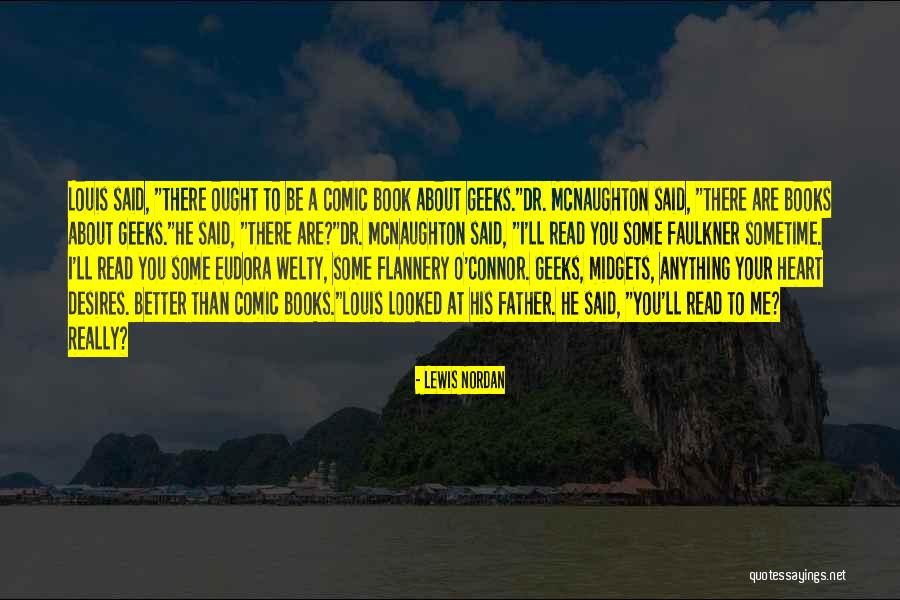
Louis said, "There ought to be a comic book about geeks."
Dr. McNaughton said, "There are books about geeks."
He said, "There are?"
Dr. McNaughton said, "I'll read you some Faulkner sometime. I'll read you some Eudora Welty, some Flannery O'Connor. Geeks, midgets, anything your heart desires. Better than comic books."
Louis looked at his father. He said, "You'll read to me? Really? — Lewis Nordan
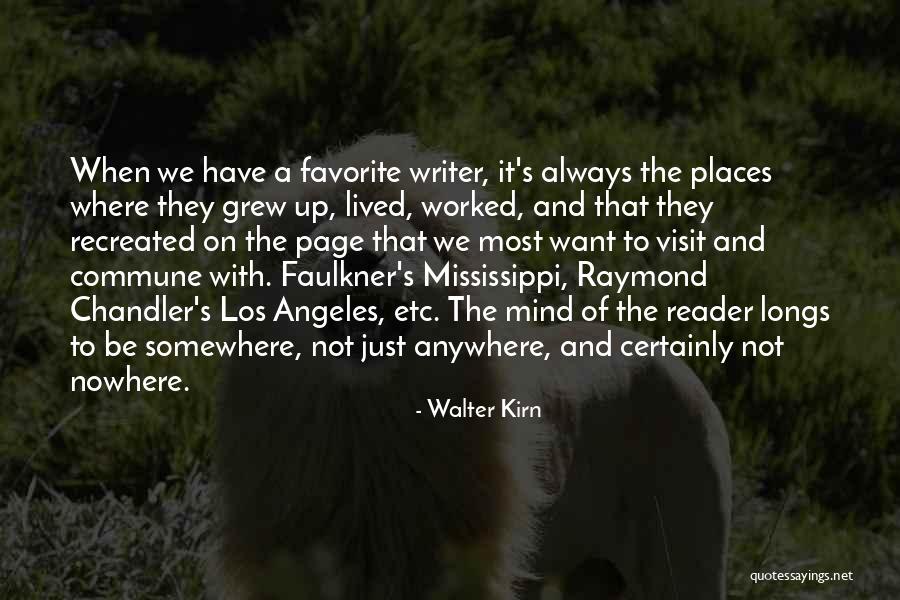
When we have a favorite writer, it's always the places where they grew up, lived, worked, and that they recreated on the page that we most want to visit and commune with. Faulkner's Mississippi, Raymond Chandler's Los Angeles, etc. The mind of the reader longs to be somewhere, not just anywhere, and certainly not nowhere. — Walter Kirn
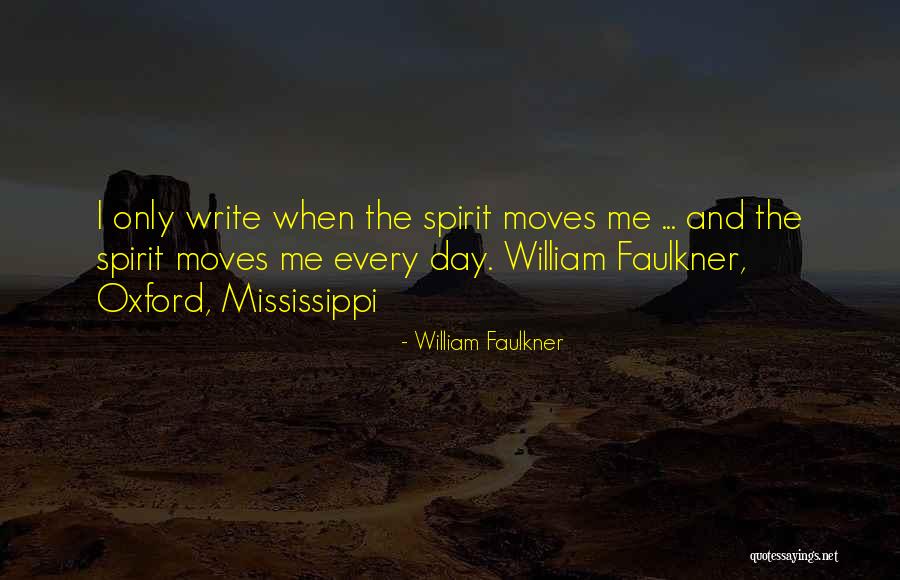
I only write when the spirit moves me ... and the spirit moves me every day. William Faulkner, Oxford, Mississippi — William Faulkner
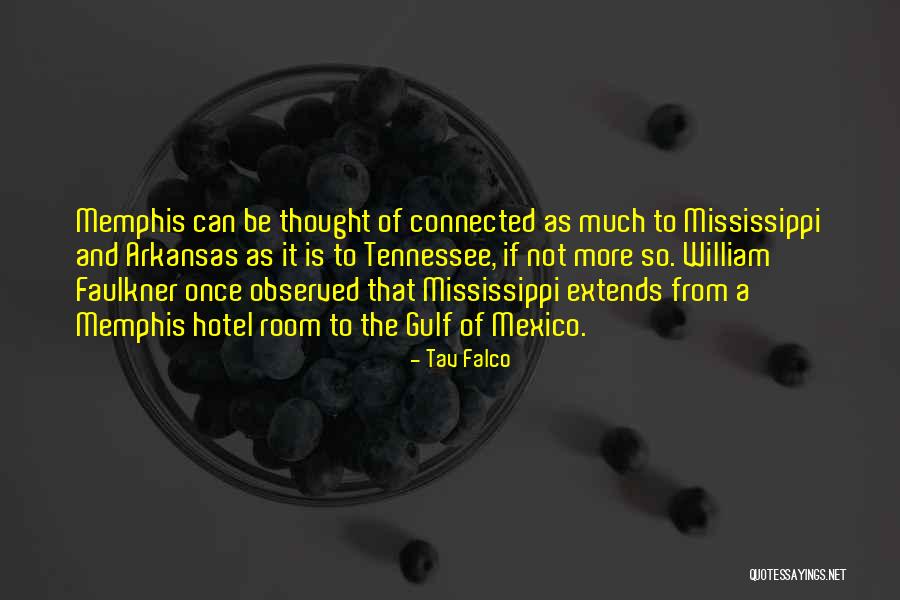
Memphis can be thought of connected as much to Mississippi and Arkansas as it is to Tennessee, if not more so. William Faulkner once observed that Mississippi extends from a Memphis hotel room to the Gulf of Mexico. — Tav Falco
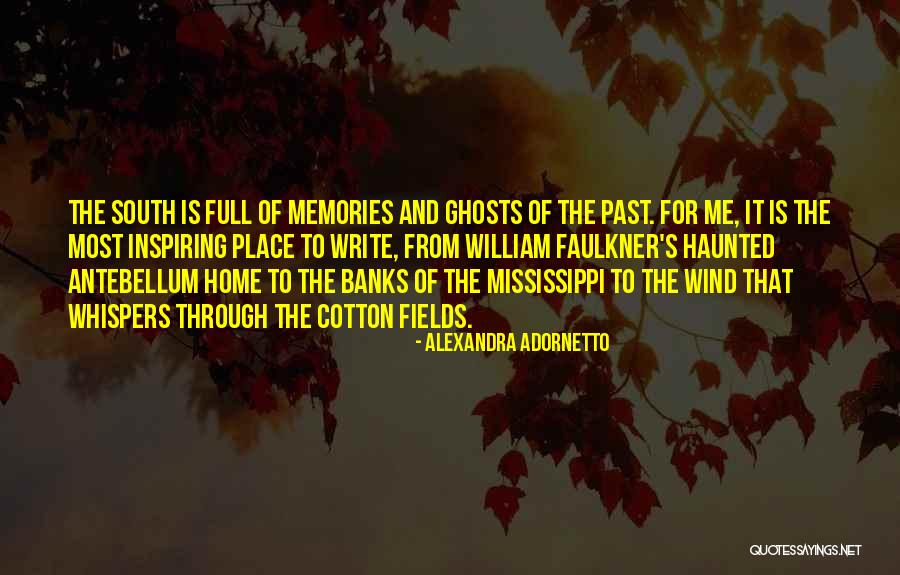
The South is full of memories and ghosts of the past. For me, it is the most inspiring place to write, from William Faulkner's haunted antebellum home to the banks of the Mississippi to the wind that whispers through the cotton fields. — Alexandra Adornetto
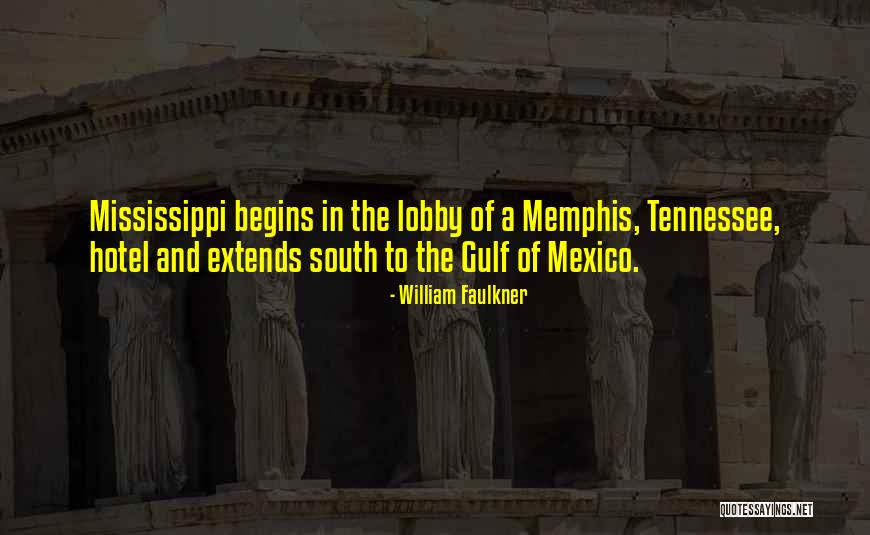
Mississippi begins in the lobby of a Memphis, Tennessee, hotel and extends south to the Gulf of Mexico. — William Faulkner
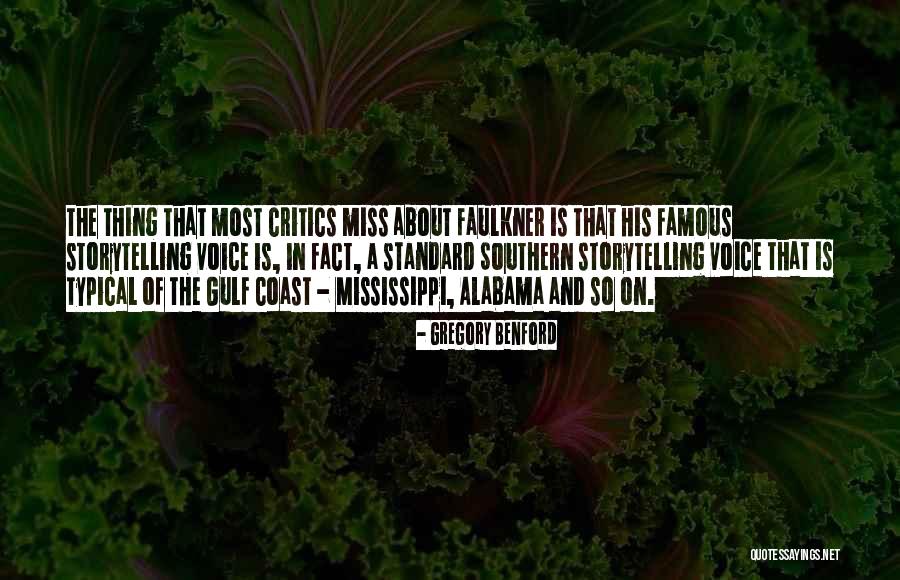
The thing that most critics miss about Faulkner is that his famous storytelling voice is, in fact, a standard Southern storytelling voice that is typical of the Gulf Coast - Mississippi, Alabama and so on. — Gregory Benford
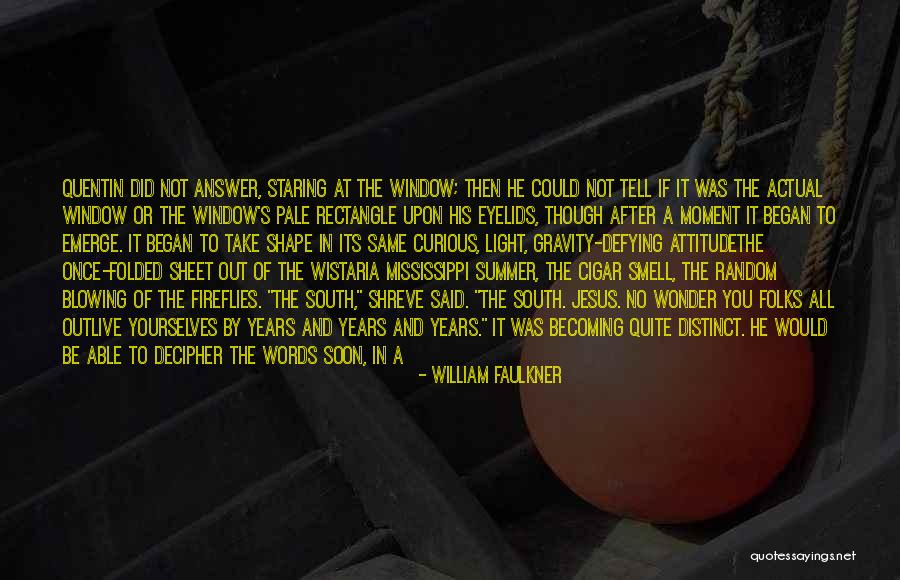
Quentin did not answer, staring at the window; then he could not tell if it was the actual window or the window's pale rectangle upon his eyelids, though after a moment it began to emerge. It began to take shape in its same curious, light, gravity-defying attitude
the once-folded sheet out of the wistaria Mississippi summer, the cigar smell, the random blowing of the fireflies. "The South," Shreve said. "The South. Jesus. No wonder you folks all outlive yourselves by years and years and years." It was becoming quite distinct. He would be able to decipher the words soon, in a moment; even almost now, now, now.
"I am older at twenty than a lot of people who have died," Quentin said. — William Faulkner
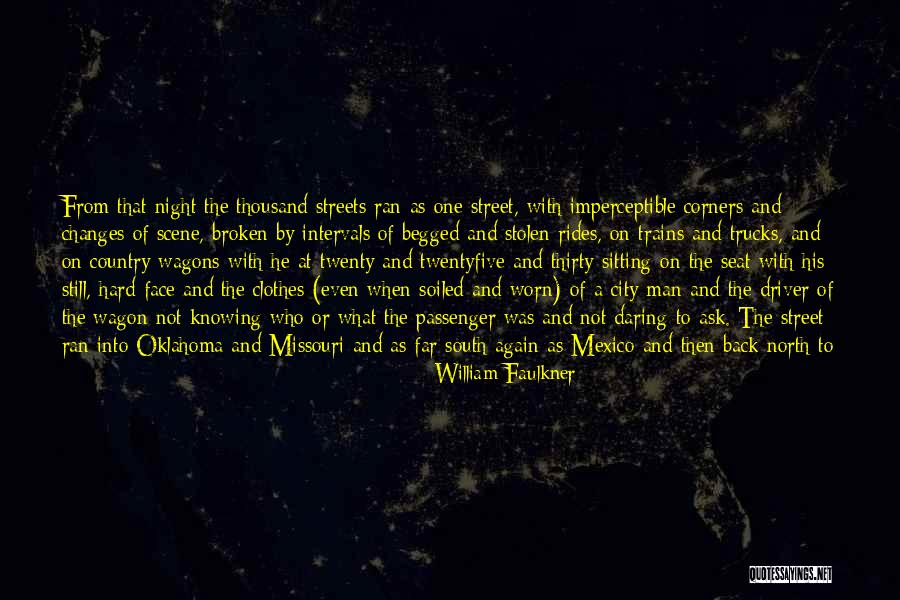
From that night the thousand streets ran as one street, with imperceptible corners and changes of scene, broken by intervals of begged and stolen rides, on trains and trucks, and on country wagons with he at twenty and twentyfive and thirty sitting on the seat with his still, hard face and the clothes (even when soiled and worn) of a city man and the driver of the wagon not knowing who or what the passenger was and not daring to ask. The street ran into Oklahoma and Missouri and as far south again as Mexico and then back north to Chicago and Detroit and then back south again and at last to Mississippi. It was fifteen years long. — William Faulkner
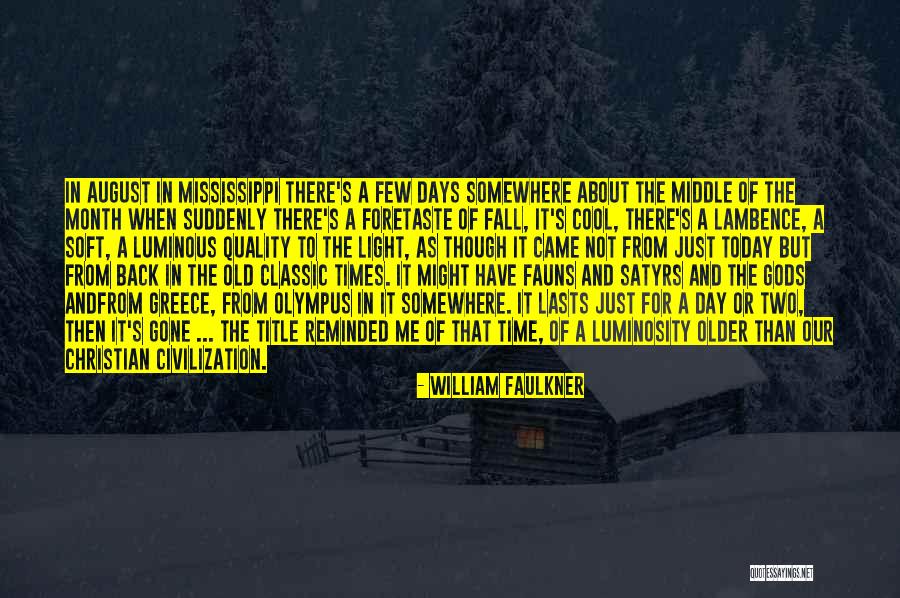
In August in Mississippi there's a few days somewhere about the middle of the month when suddenly there's a foretaste of fall, it's cool, there's a lambence, a soft, a luminous quality to the light, as though it came not from just today but from back in the old classic times. It might have fauns and satyrs and the gods and
from Greece, from Olympus in it somewhere. It lasts just for a day or two, then it's gone ... the title reminded me of that time, of a luminosity older than our Christian civilization. — William Faulkner
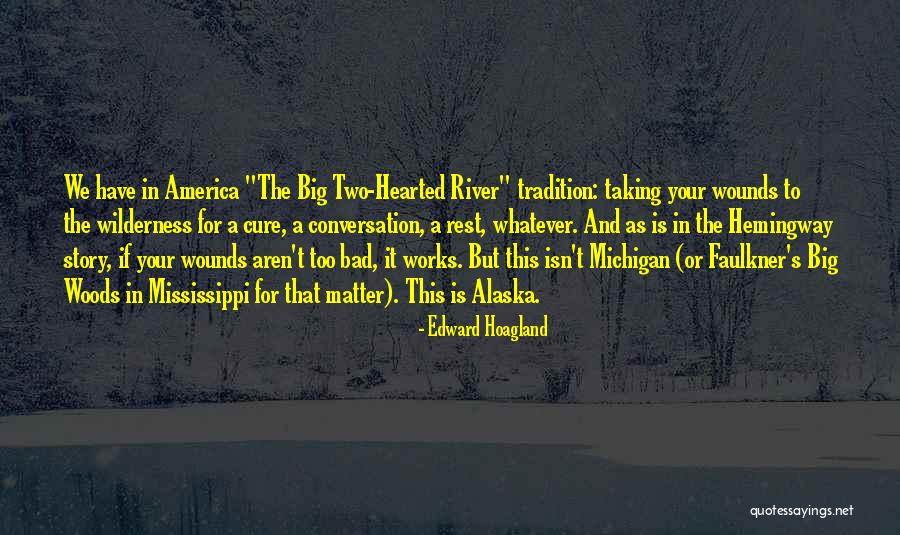
We have in America "The Big Two-Hearted River" tradition: taking your wounds to the wilderness for a cure, a conversation, a rest, whatever. And as is in the Hemingway story, if your wounds aren't too bad, it works. But this isn't Michigan (or Faulkner's Big Woods in Mississippi for that matter). This is Alaska. — Edward Hoagland
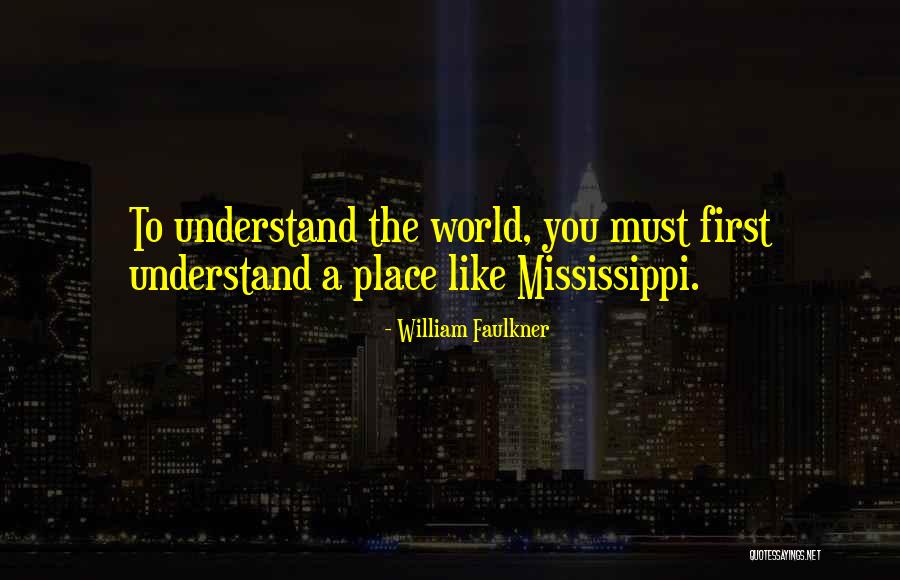
To understand the world, you must first understand a place like Mississippi. — William Faulkner





